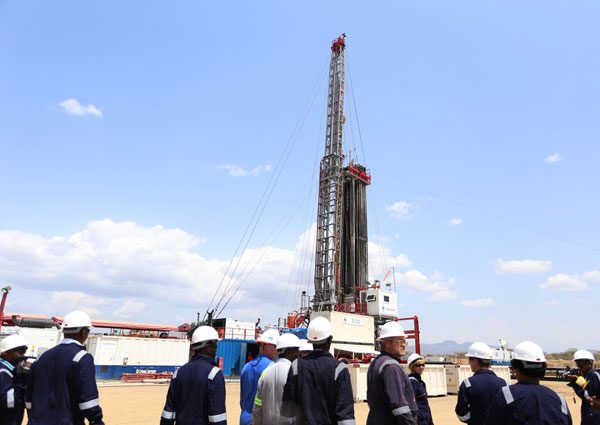
Oil exploration in the country is expected to slow down next year due to a sharp decline in global prices of crude oil that has been witnessed in the global market.
According to the Kenya Oil and Gas Association, the umbrella body for locally operating exploration firms, companies are expected to make individual evaluation of their operations in the wake of oversupply of crude from the United States that has rendered crude prices to a five year low.
“We do not see exploration in Kenya going to a complete stop.
There may be a decline in activity by some companies but each firm has its own opinion of how the trend in the global market may affect them,” said Gurjeet Jenkins, KOGA’s chair in a telephone interview.
The East African region has recently emerged as an oil and gas hub, going by the discoveries of oil and natural gas deposits in Uganda, Kenya and Tanzania.
Tanzania is already mining its natural gas while Uganda has established the commerciality of its oil deposits which stand at above three million barrels.
Government records show that Kenya’s oil deposits are above the minimum threshold for commercial exploitation which industry estimates put at 600 million barrels.
This comprises of deposits that have been discovered in the Lokichar basin alone, since the maiden find in March 2013.
The rest of the country’s exploration acreages, some of which lie in areas with similar geological structures as the Lokichar area hence a high possibility of oil find, remain largely under explored.
Tullow Oil Plc of the United Kingdom and its partner Africa Oil Corporation of Canada were the first firms to discover oil in Kenya on block 10BB.
In November, Tullow announced plans to reduce its exploration budget as a strategy to adapt to falling global prices of crude oil.
COMMENCE PRODUCTION
For the period up to 2017, Tullow said it will concentrate on its West African assets where it has discovered oil in commercially viable quantities as it gets ready to commence production.
“In light of current oil and gas sector challenges including the commodity price environment, we are reviewing our capital expenditure and our cost base to ensure that Tullow is well positioned for future success.
“Our overall exploration spend will be significantly reduced and will focus primarily on East Africa where we have major basin opening potential,” said Tullow’s chief executive officer Aidan Heavey.
It targets to reduce the net exploration and appraisal budget for 2015 by $300 million, a situation that is likely to affect the firm’s exploration activity in Kenya.
As a result of the announcement, Tullow recently shed its value at the London Stock Exchange by up to 10 per cent with analysts saying that the firm could be a possible takeover target.
Falling crude prices will in particular, make it difficult for companies seeking to raise money to finance exploration activity.
Some companies consider this a possible threat even as they are optimistic of continued exploration work in 2015.
The price of crude oil in the global market has currently fallen below $65 a barrel.


